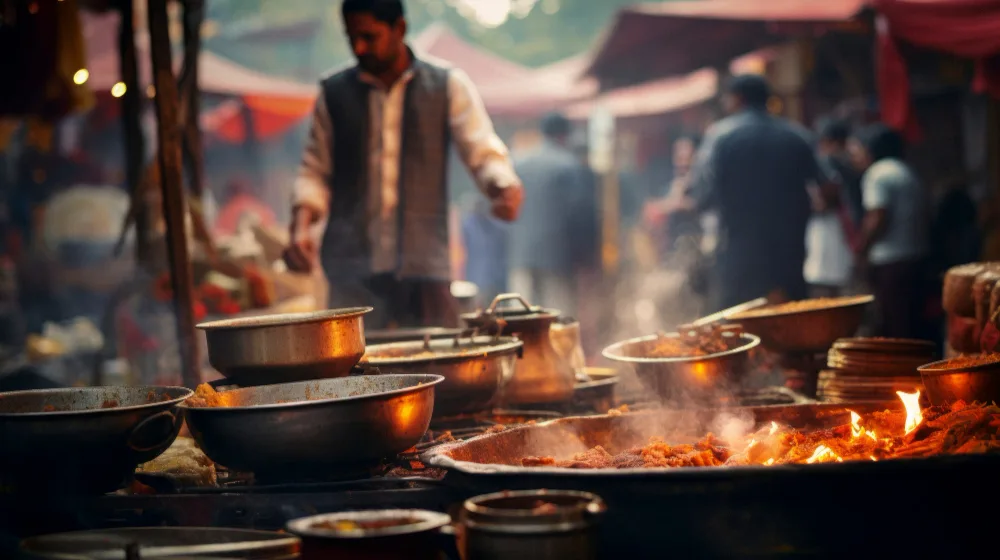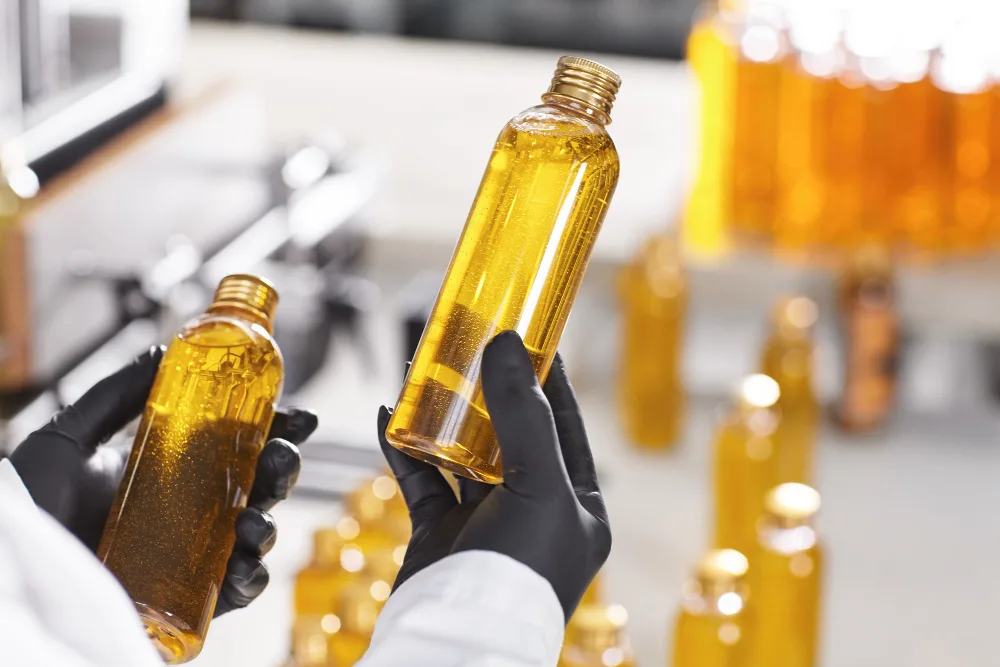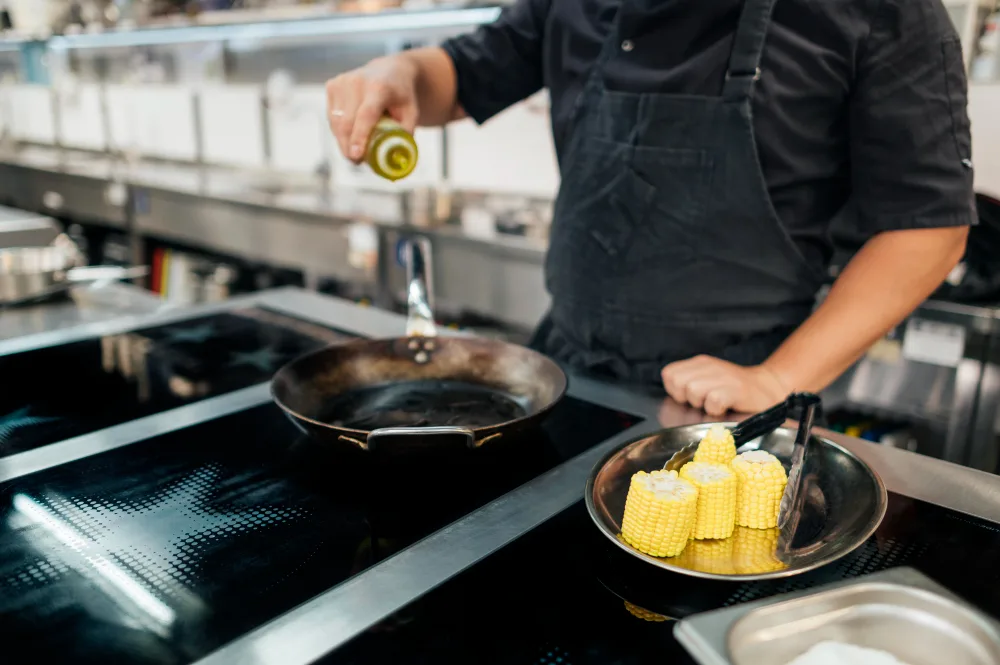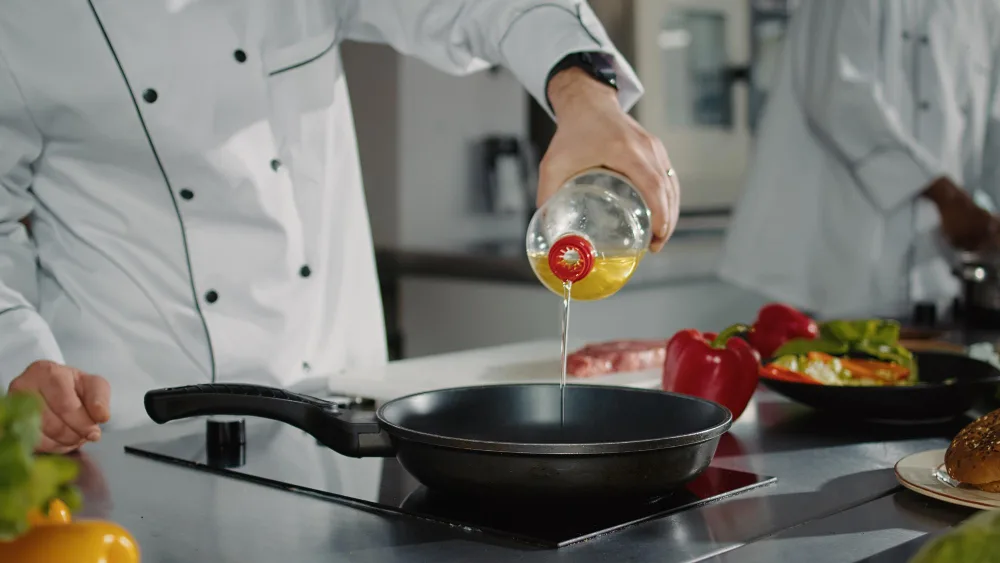Have you ever surprised about the impact of how you heat your vegetable oils on your health? The Indian Council of Medical Research (ICMR) has recently highlighted a concerning link between repeated heating of vegetable oils and an increased risk of cancer.
In this blog post, we will find out the best ways to reuse vegetable oil safely, discuss proper storage methods, and identify the healthiest options for cooking oils. Let’s uncover the facts together!
Repeated heating of vegetable oils may increase cancer risk: ICMR Says
Did you know that the Indian Council of Medical Research (ICMR) has issued a warning about the potential risks associated with repeatedly heating vegetable oils? According to their findings, subjecting vegetable oils to high temperatures multiple times can lead to harmful compounds being formed, which may increase the risk of cancer.
The process of overheating oil not only affects its nutritional quality but also poses health hazards. When oils reach their smoke point through repeated heating, they undergo chemical changes that can be detrimental to your well-being.

Avoid reusing oil excessively and opt for fresh batches when frying or sautéing foods.
To minimize this risk and ensure you’re using oil safely, it’s crucial to follow proper cooking practices. Additionally, storing oil correctly in a cool, dark place helps maintain its stability and prevents degradation.
Make informed choices when selecting your cooking oils and prioritize those with high smoking points like avocado or coconut oil. By being mindful of how you handle and heat vegetable oils in your kitchen, you can reduce the potential cancer risks associated with their repeated use.
How to reuse your vegetable oil properly
The apex body advises on reusing vegetable oil by filtering it for curry preparations and consuming it within a day or two.
“At the household level, vegetable oil used for frying should be filtered and can be repurposed for curry preparations. However, the same oil should not be used for frying again. Additionally, these oils should be consumed within a day or two. Storing ‘used’ oils for extended periods should be avoided due to their high rate of deterioration,” the report notes.
If you notice any changes in color, smell, or consistency of the oil, it’s best to discard it rather than risking potential health hazards. Remember not all oils are suitable for reuse due to their smoke points.
By following these simple guidelines, you can ensure safe and responsible reuse of your vegetable oils while minimizing health risks associated with repeated heating processes.
Best methods for storing oil
When it comes to storing vegetable oil, ensuring it remains fresh and safe for consumption is key. One of the best methods for storing oil is to keep it in a cool, dark place away from direct sunlight and heat sources. Exposure to light and heat can lead to oxidation, which may degrade the quality of the oil.
Another important tip is to seal the container tightly after each use to prevent air from getting in contact with the oil. Oxygen can also contribute to oxidation and rancidity over time.

Choose a glass or opaque container rather than a clear plastic bottles one as it provides better protection against light exposure.
It’s recommended to store vegetable oils at room temperature but make sure not to place them near any appliances that generate heat like stoves or ovens. By following these simple storage practices, you can prolong the shelf life of your vegetable oil and maintain its freshness for longer periods.
What is the healthiest vegetable oil?
When it comes to choosing the healthiest vegetable oil for your cooking needs, there are a few options that stand out for their nutritional benefits and versatility. Olive oil is well-known for its heart-healthy monounsaturated fats and antioxidants, making it a great choice for everyday use.
Also read: Olive oil a natural defense against dementia
Avocado oil is another excellent option due to its high smoke point and abundance of beneficial nutrients like vitamin E and potassium. Coconut oil has gained popularity in recent years for its potential anti-inflammatory properties and unique flavor profile.
For those looking for a neutral-tasting oil with a high smoke point, grapeseed oil is a good choice. It’s rich in polyunsaturated fats and can withstand high heat without breaking down easily. Each of these oils brings something different to the table in terms of flavor, nutrient content, and cooking applications. The healthiest vegetable oil for you will depend on your personal preferences and dietary needs.
Conclusion
As we wrap up our discussion on the impact of heating vegetable oils, it is essential to consider the implications carefully. The findings from ICMR shed light on the potential risks associated with repeatedly heating these oils. It’s crucial for individuals to be mindful of their cooking practices and how they handle oil to minimize any potential health concerns.

Choosing the healthiest vegetable oil for your cooking needs is another important factor to consider.
When it comes to reusing vegetable oil, proper techniques can help maintain its quality and reduce the formation of harmful compounds. Storing oil correctly in a cool, dark place away from heat and light is key in preserving its integrity.
Opting for oils with high smoke points like avocado or coconut oil may be beneficial when exposed to higher temperatures.
Being informed about how you handle and use vegetable oils can contribute significantly to your overall well-being. Stay educated, make conscious choices, and prioritize your health above all else!
FAQ
Q: Can I reuse vegetable oil multiple times?
A: It is best to avoid reusing vegetable oil multiple times, as it can lead to the formation of harmful compounds that may increase cancer risk.
Q: What is the best method for storing vegetable oil?
A: The best way to store vegetable oil is in a cool, dark place away from heat and light. Make sure to keep it tightly sealed to prevent oxidation.
Q: Which is the healthiest vegetable oil option?
A: Olive oil is often considered one of the healthiest options due to its high levels of monounsaturated fats and antioxidants. Other good choices include avocado oil and coconut oil.
Also read: India bans 10 foods linked to cancer in FSSAI guidelines
